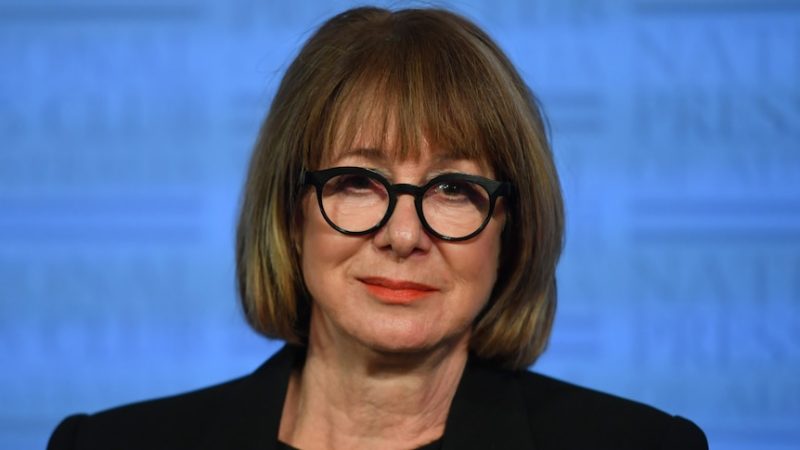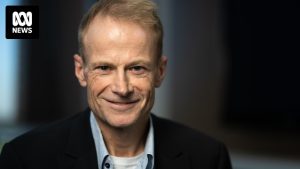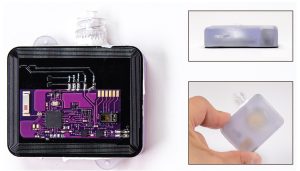Epidemiologist Mary-Louise McLaws remembered by health community for her life-saving work

World-renowned epidemiologist Mary-Louise McLaws has been remembered by the Australian scientific community for her loyal public service during one of the most frightening times for the nation.
Key points:
- Mary-Louise McLaws died on Saturday at age 70
- The epidemiologist helped guide Australia through the COVID-19 pandemic
- Professor McLaws was diagnosed with brain cancer 18 months ago
Eighteen months ago, Professor McLaws was diagnosed and treated for brain cancer after suffering a severe headache.
On Saturday she died at age 70, leaving behind her husband and two children.
Professor McLaws became a voice of reason and warmth during the COVID-19 pandemic when she offered calm guidance on how Australians should stay safe.
An early and strong advocate for mask wearing, rapid antigen testing and avoiding indoor crowds, Professor McLaws didn’t hesitate to push governments to take more precautionary measures.
She advocated for “ring-fencing” of COVID hotspots across Sydney and Melbourne and called out the risks of hotel quarantine.
NSW chief health officer Kerry Chant, who also became a household name during the pandemic, came to know Professor McLaws during the turbulent time.
She acknowledged her colleague’s forensic scientific analysis and willingness to prosecute the evidence.
“She was always a calm, reasoned, thoughtful voice and drew on her extensive experience both here and internationally,” Dr Chant said.
“I think she was important in the public discourse … she was authoritative but thoughtful.”
Dr Chant said it was important to have someone who could challenge “traditional thoughts”.
Chancellor for the University of New South Wales (UNSW), which she joined in the mid-80s while doing her PhD, said she would not be forgotten.
“We mourn the passing of a UNSW academic who was locally grown and became a superstar while remaining tenacious, humble, hardworking and caring,” David Gonski AC said.
“We are grateful for all she did for UNSW and Australia.”
The university’s vice-chancellor and president professor, Attila Brungs called her contribution to public health in Australia and globally “outstanding”, saying she was a valuable member of the UNSW community who would be missed by her colleagues and students.
Professor McLaws was appointed to the World Health Organization (WHO) expert advisory panel on COVID-19 and the NSW clinical taskforce for COVID-19.
She often shared ground-breaking research on coronavirus and tackled inaccuracies.
“You spoke truth, you took on the pandemic of disinformation, you helped keep us safe. For that we owe you so much,” former prime minister Malcolm Turnbull said in his tribute to Professor McLaws.
Epidemiologist colleague Catherine Bennett said Australia was lucky to have someone who had a wealth of background experience in infection control.
“She had been working in this space for over 40 years,” she said.
Professor McLaws specialised in preventing infection within hospital settings and earlier in her career she led the charge to eliminate HIV and swine flu.
She conducted infection control research in Cambodia, China, Bangladesh and Iran and her work on the Severe Acute Respiratory Syndrome (SARS) outbreak in China and Hong Kong was something she often drew upon during the COVID-19 pandemic.
Professor Bennett said the pair often shared their experiences of being in the public spotlight during 2020 and 2021 and recounted the pressure they felt during their countless media interviews.
She said Professor McLaws used to compare doing interviews to an oral PhD exam “because you can be live on air and asked about anything”.
“It was a very unusual experience for both of us,” Professor Bennett aid.
“We would touch base and just ground ourselves.”
She said she last saw Professor McLaws in March at a Rotary conference in Cowra, where she was honoured with a vocational excellence award.
At the time she was in poor health but made the effort to travel to the Central West to attend the conference.
Professor Bennett said McLaws had many PhD students who will be her “legacy” as she was especially gifted at teaching.
Close friend and UNSW dean of medicine Vlado Perkovic described her as a “dynamo” who stood out due to her compassion for others.
“She wasn’t interested in the politics, she wasn’t interested in the processes, she just wanted to make sure that people had the best information that they could have to achieve the best outcomes for themselves,” he said.
“There are so many people, I think, who felt personally very close to Mary-Louise.”
Victoria’s chief health officer Clare Looker said the country had lost a “fierce” advocate for public health and Burnet Institute director Brendan Crabb credited her with saving “thousands of lives”.
He said she could be bold and even “radical”, sometimes calling for lockdowns to be extended, but she was always listened to.
“The whole community tuned in to her every word,” Professor Crabb said.
“Every journalist clearly respected her deeply it seemed, more than they would a head of state.
“Her work and views and advocacy helped save thousands of lives.”
Professor McLaws wrote 180 scientific papers and was made an Officer of the Order of Australia in 2022 for distinguished service to epidemiology and infection prevention.








